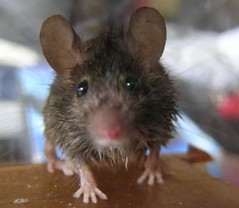
BHT (Butylated Hydroxytoluene) is an antioxidant that’s included in numerous foods and beauty products to prevent oxidation. It’s also stable in light and air (Toxicology Data Network). There have been varying articles discussing the fact that BHT is both carcinogenic and anti-carcinogenic. But much of the information on BHT depends on several factors including whether it’s applied to the skin or ingested and how much of it is used. And, as with many ingredients, many more studies need to be done to make a conclusive call about when and how BHT can be good or bad.
Is it carcinogenic?

BHT has been shown to be both carcinogenic and anti-carcinogenic when ingested. And there are studies that demonstrate this both ways. One performed on rats in Sweden found that at levels of 100 to 750 microM, it was cytotoxic (Biochemical Pharmacology). Another study found that it was cytotoxic because it triggered the release of cytochrome c. This protein isn’t always bad, but in this case it can cause overactive apoptosis or cell death (Molecular Pharmacology, The Oncologist). After repeated injection it was also found to cause lung tumors and damage in mice in two studies (Experimental Biology and Medicine, Carcinogenesis). And still more studies have shown that it can act as a toxin and tumor-promoter (Proceedings of the National Academy of Science).
These carcinogenic effects are comment in the research literature, but do you know what else is? Anti-carcinogenic effects.
Or is it anti-carcinogenic?
It’s not necessarily anti-carcinogenic in the studies that show its effectiveness is helping health. There are a few studies that look at its anti-carcinogenic properties. One study showed that BHT help prevent photocarcinogenesis. When applied to the skin affects the stratum corneum, BHT changes it to reduce UVB damage because of its antioxidant properties (Photochemistry and Photobiology). Other studies have found that BHT can mitigate the effects of certain other cancer-inducers when pre-fed to rats (Cancer Treatment Reports).

There are also studies simply looking at its effects on other kinds of toxicity. A Swedish study that polled people on their diets and looked for a link between BHT and stomach cancer found none (Food and Chemical Toxicology). Another study fed rabbit cholesterol diets and found those also give BHT has lower incidences of cholesterol-induced atherosclerosis (American Heart Association).
However, no studies have been done to test carcinogenic or anti-carcinogenic effects on humans.
But does that mean it’s good or bad?

There isn’t a clear-cut answer in terms of BHT. While it’s been shown to work as an antioxidant, it also has been shown to cause damage to different parts of the body including lungs and liver. Studies go across the board and it seems the factors are which organ is targeted, other carcinogenic agents, the animal tested, the parameters of the studies, etc. (International Journal of Toxicology).
As far as cosmetics go, the studies are limited, but the final review in the International Journal of Toxicology is that at the current, small amount in cosmetics, BHT is generally safe. Applied to the skin, the studies indicated that it’s not irritating, sensitizing, or photosensitizing. Though it does penetrate the skin, it mainly stays in the skin. Once again, to quote the article, “Recognizing the low concentration at which this ingredient is currently used in cosmetic formulations, it was concluded that BHT is safe as used in cosmetic formulations.”
Bottom Line
BHT is considered safe in cosmetics at the levels it’s used in them. Preservatives are important because they stop oxidation and bacteria that could otherwise be harmful to users. It’s more difficult to say whether BHT is OK in food — the studies show such disparate results that the answer is more complex than simply, “good” or “bad.” Studies indicate that it has both an immune-boosting ability, as well as carcinogenic effects. There haven’t been studies done on humans, so to confirm results in current studies, those tests will bee to be performed. Overall, more studies need to be done to determine the effect of BHT on humans, but BHT appears to be safe in cosmetics.


